- Home
- Daphne Du Maurier
The Winding Stair: Francis Bacon, His Rise and Fall
The Winding Stair: Francis Bacon, His Rise and Fall Read online
THE WINDING STAIR
Francis Bacon, His Rise and Fall
Daphne du Maurier
Foreword by Francis King
Begin Reading
Table of Contents
Newsletters
Copyright Page
In accordance with the U.S. Copyright Act of 1976, the scanning, uploading, and electronic sharing of any part of this book without the permission of the publisher constitute unlawful piracy and theft of the author’s intellectual property. If you would like to use material from the book (other than for review purposes), prior written permission must be obtained by contacting the publisher at [email protected]. Thank you for your support of the author’s rights.
‘All Rising to Great Place is by a winding Staire.’
FRANCIS BACON, Essay No. XI, 1625
The Right Honourable Sir Francis Bacon, Knight, Lord High Chancellor of England (engraving by Francis Holl after Simon Pass)
Foreword
In 1934, at the age of twenty-seven, Daphne du Maurier published her first biography. Her recently dead actor father, with whom she had had an extremely close and, to some extent, psychologically disturbing relationship during her childhood and adolescence, was its subject. Son of George du Maurier, Punch artist and the author of Trilby, Gerald du Maurier was famous not for his assumption of any of the great classical roles but for the nonchalant elegance that he brought to contemporary drama. The biography provoked some of his friends and theatrical colleagues to disapproval for what they regarded as its undaughterly candour. But reviews and sales both immeasurably exceeded the young author’s hopes and expectations and brought her to the attention of a far wider public than her previous three novels had succeeded in doing.
The circumstances in which, some forty years later, Daphne du Maurier came to write her last two biographical works, The Winding Stair and its predecessor Golden Lads: A Study of Anthony Bacon, Francis and Their Friends, were sadly different. As Margaret Forster poignantly records in her fine biography of du Maurier, the robust, eager, energetic, highly ambitious woman of the early years had by then become increasingly despondent and reclusive.
Worst of all, the imagination that had once been so fertile and fervent in its plotting of such best-sellers as Rebecca, Frenchman’s Creek and My Cousin Rachel, now refused to yield up anything on which she could optimistically base another novel. The embarrassing and, to her, unexpected critical failure of her Rule Britannia, a satire based on the premise that Britain and the United States had been unified, must also have deterred her from embarking on further fiction—even though her fame ensured that that book nonetheless made her a satisfactorily large sum of money.
However, du Maurier felt confident that, even though she could no longer breathe life into invented situations, she still possessed the literary skill to do so into real ones. As both the Bacon books confirm, she was absolutely right in this belief. All the old ability incisively to delineate character, suspensefully to orchestrate incident and vividly to invoke atmosphere, are present in each.
One can only guess as to what impelled du Maurier, at this moment when the high tide in her life and suddenly begun to reverse itself, to write about Anthony and Francis Bacon and their friends. The novelist Robert Liddell, long resident in Greece, once told me that, on the occasion of a visit by her to Athens in the fifties, long before she had embarked on the Bacon project, he happened to mention that he had been rereading Francis Bacon’s Essays. At once she had responded with an enthusiasm matching his own. She then told him that a governess of hers had urged her to read the Essays in her late teens, that she had done so most reluctantly, but had then at once been overwhelmed. Subsequently, as Margaret Forster records, a reading of James Spedding’s monumental seven-volume The Letters and the Life of Francis Bacon deeply impressed her. Like other of Bacon’s biographers, she was to rely heavily on it.
It may well be that du Maurier was also attracted to the subject by the rumours, current even in their lifetimes, that the two Bacon brothers had, as members of the intimate circle of Robert Devereux Earl of Essex, been involved in homosexual intrigues and even activities. Throughout her life, the subject of homosexuality fascinated du Maurier. Her unnaturally devoted father would often tell her that he wished that she had been born a boy. In her childhood and adolescence she even believed that she was a boy, trapped in the body of a girl—just as subsequently another writer, James (later Jan) Morris, believed that he was a woman trapped inside the body of a man.
When she was twenty-two du Maurier had had an affair, more passionate on his side than on hers, with the then apprentice but later famous film director Carol Reed, illegitimate son of the actor-manager Herbert Beerbohm Tree. This aroused the obsessive jealousy of her father. Subsequently she was a staunch wife to General ‘Boy’ Browning, a dapper, distinguished soldier. But nonetheless she was also repeatedly attracted to women. The most notable of these attachments, occurring in her fifties, was to the glamorous and worldly actress Gertrude Lawrence, for many years Noel Coward’s closest female friend, co-star and muse. Lawrence’s death at the early age of fifty-four totally devastated du Maurier. It could be said that it was after that bereavement that she began prematurely to give up on life and writing.
Unlike many authors of popular historical biographies, du Maurier resembled Antonia Fraser in being an indefatigable researcher. It is true that she employed others to help her in particularly onerous tasks, such as transcribing the letters of Lady Bacon, mother of Anthony and Francis; but nonetheless she wore herself out with her reading of boxes and boxes of arcane records and her travelling not merely around England but also to France. When the two books appeared, scholars generously praised her thoroughness and accuracy. It was she who first revealed to an English readership a surprise discovery, made in the departmental archives of Tarn-et-Garonne the year before the first of the books, Golden Lads, appeared. This showed that during a sojourn in France Anthony Bacon had been accused of sodomy, then a capital crime.
After A. L. Rowse had read the copy of The Winding Stair presented to him by du Maurier, who was both a neighbour and a friend, he remarked favourably on it to the publisher Charles Monteith. But then he added, ‘The only trouble is that these woman biographers always fall in love with their subjects.’ If by this he meant that du Maurier had not been stringent enough when dealing with the less attractive aspects of Bacon’s character and life—his notorious extravagance, his deviousness, his consuming ambition, his disloyalty in acting for the prosecution at the arraignment for treason of his former friend and patron Essex at Westminster Hall, his unprincipled skill in shinning up the greasy pole of preferment—there was some degree of truth in the comment. But the fact that she was ‘in love’ with her protagonist had the great advantage that it enabled her to show for him the same kind of empathy that she had already shown in such abundance for even minor characters in her novels. Bacon was certainly a deeply flawed man; but he was also unique for his time in the depth of his erudition and the range and daring of his thought. Du Maurier is triumphant in conveying that uniqueness.
Macaulay wrote primly of Bacon that he was ‘a man whose principles were not strict and whose spirit was not high’. Lytton Strachey wrote of him that, ‘The detachment of speculation, the intensity of personal pride, and the uneasiness of nervous sensibility, the urgency of ambition, the opulence of superb taste—these qualities, blending, twisting, flashing together, gave to his secret spirit the subtle and glittering superficies of a serpent.’ Perhaps du Maurier does not fully convey the serpentine danger and cunning of this all too fallible man; but what sh
e does perfectly convey is the brilliance and glamour of his genius.
Since the publication of her two biographies, Baconians have often claimed du Maurier as one of themselves. But although she produces a lot of evidence that might, if favourably interpreted, be regarded as supporting the attribution of Shakespeare’s plays to her hero, she never ventures further than the proposition that the two Bacon brothers and other noblemen with literary talent may have at various times acted as minor collaborators. As she saw it, this would have merely entailed providing Shakespeare with now a few lines, now a situation, now a character, and now perhaps even a sonnet.
Nonetheless, everything that du Maurier writes about this nobleman of formidable intellectual powers, potent imagination, wide culture, and a supreme gift for a memorable phrase, indicates that the sole authorship of such stupendous works of literature is something of which he might well have been capable.
Francis King, 2005
To the Reader
Golden Lads was a study of Anthony Bacon, his brother Francis and their friends. When Anthony died in May 1601 Francis was forty years old. He was to live for a further twenty-five years, becoming successively Solicitor-General, Attorney-General, a member of the Privy Council and Lord Chancellor. At first simply Sir Francis Bacon, later he was Baron Verulam, and finally Viscount St. Alban. He would also marry. His career has been described many times by eminent historians and biographers, and his literary, philosophical, scientific and other works have been studied in depth by scholars throughout the world.
I felt, when I had completed Golden Lads, that the ordinary reader (in which category I place myself) has never been sufficiently interested in, or understood, the extraordinary complexity of Francis Bacon’s character and the many facets of his personality. The endeavour to explain him would be a challenge.
The result is The Winding Stair.
DAPHNE DU MAURIER
1975
Timeline of Francis Bacon’s Life
Born, second son of Sir Nicholas Bacon (Lord Keeper) and Ann (sister-in-law of William Cecil, Lord Burghley) 22 Jan. 1561
Matriculated at Trinity College, Cambridge 10 June 1573
Admitted at Gray’s Inn 21 Nov. 1576
First sat in the House of Commons as Member for Melcombe 1584
Knighted by James I 23 July 1603
Confirmed as Learned Counsel 25 Aug. 1604
Solicitor-General 25 June 1607
Attorney-General 26 Oct. 1613
Privy Counsellor 9 June 1616
Lord Keeper 3 March 1617
Lord High Chancellor 4 Jan. 1618
Baron Verulam of Verulam July 1618
Viscount St. Alban 27 Jan. 1621
Sentenced by the House of Lords 3 May 1621
Died 9 April 1626
1
Francis Bacon was forty years old when his elder brother Anthony was buried at St. Olave’s, Hart Street, in the city of London, on May 17th 1601. Whether Francis was present at the funeral is unknown. Amongst his correspondence there is no letter reporting his loss, and the event seems to have passed without comment, except for a chance remark from the gossip John Chamberlain to Dudley Carleton. Writing on May 27th Chamberlain said, ‘Anthony Bacon died not long since, but so far in debt that I think his brother is little the better by him.’
So much for the casual opinion of one who was well known to statesmen, diplomats, courtiers, and all who moved in such circles at that time. No word of regret for the man who had died, broken in health, in his forty-fourth year, the will to live spent after the trial and execution of the friend and master whom he had served so faithfully, the ill-fated Robert Devereux, Earl of Essex. Possibly the brevity of the announcement was deliberate; it did not do to show sympathy for any of those connected with Essex’s rebellion of a few months past. Apart from his closest friends and his immediate family only the common people sighed for the beheaded earl, their hero.
For Francis, the reasons for silence were more profound. When the earl stood trial for treason in Westminster Hall, Francis Bacon spoke for the Crown at the express command of Her Majesty the Queen, a summons he could not disobey. If his words, spoken without malice and with great sincerity—for he believed the rebellion to have been a genuine attempt to seize the reins of government—had helped to send the misguided earl to the block, then such had been his distressing, painful duty. The earl had been his patron and friend, and had rendered him many a service, which he had repaid in kind. But his loyalty to the monarch came before friendship or gratitude. He had learnt that loyalty at his father’s knee. Sir Nicholas Bacon, Lord Keeper of the Great Seal, held the Crown paramount after God. Francis had a double motive for demonstrating loyalty. He knew that if he used all the powers of oratory at his command—and it was for this skill that he, a junior counsel, had been chosen to speak on such a grave occasion—the fact that his brother Anthony was a close friend and confidant of the accused earl, and could well have been privy to the rebellion even from his sick bed, would not be mentioned at Westminster Hall. Francis might be instrumental in helping to send the Earl of Essex to the block, but in doing so he would save his brother Anthony from the gallows.
Her Majesty, however, demanded even more than this. The younger son of her old servant the Lord Keeper not only spoke with ease and facility; he could also write. It was to him, therefore, that she gave the task of drawing up a Declaration of the Practices and Treasons attempted and committed by Robert Late Earl of Essex and his Complices, Against Her Majesty and Her Kingdoms. A thankless undertaking, which, when Francis had completed it, was closely examined by the Queen herself, who erased any words of compassion. The revised document was sent to the press on April 14th, some seven weeks after the earl’s execution in the Tower. A little over a month later Francis’s brother Anthony died, broken in mind and body.
So the gesture had been largely in vain. Francis had saved his brother’s honour and good name, but in doing so had hastened his end. Doubtless Anthony would rather have died shamefully by the hangman’s rope within a few days of his beloved earl than have lingered on for those remaining weeks.
‘So far in debt,’ John Chamberlain had told Dudley Carleton, ‘that I think his brother is little the better by him.’ Anthony’s creditors had not known where to find him. They did not even know where he was buried. But they could crowd upon his brother Francis at his lodging in Gray’s Inn, and follow him down to his estate of Gorhambury in Hertfordshire, if need be. Here his mother Lady Bacon, now seventy-three, lived in retirement, worn with distress by the events of the past few months, indeed, of the last few years, from the time of Essex’s disgrace on returning from Ireland—where, as commander of the Queen’s forces sent to put down the rebellion led by the Earl of Tyrone, he had met with ignominious failure—to his rebellion and execution. So often she had warned Anthony against his devotion to Essex, but to no avail; and now her first-born was dead, deserted by all, alone, perhaps without even a prayer at the last.
Her wits began to go, and she would wander through the rooms and the long gallery at Gorhambury, talking to herself, searching for familiar faces, enquiring for old servants who had served her faithfully in former days, but who were now departed or dead. When Francis, her younger boy, came to ask her about farm rents, deeds, and debts, she could not understand that it was now his business, he was his brother’s heir and money must be produced to pay Anthony’s creditors. What creditors? Did Francis mean that crowd of hangers-on of whom she had always disapproved? That French page? That seducing Catholic Lawson? She would hear none of it. Such cattle should never move into the manors or the farms. She knew what it would come to. She would be driven from her home in her old age, to wander the countryside, alone and servantless, forsaken by even her one remaining son.
Argument was useless. Francis was unable to pacify his mother, tortured by grief. Yet the debts must be paid, and Gorhambury must be safe in his own hands so that he could settle the estate. Back then to London and Gray’s Inn, to
consult with his close friends—of whom his mother disapproved as much as she had done of his brother’s. One of the chief creditors was no hanger-on, but a genuine friend to him and Anthony—Mr. Nicholas Trott, from whom they had both borrowed through the years. Something like £2,600 had been lent in the past, and although part of this had been repaid the interest had mounted, and Francis had been obliged to mortgage his own house, Twickenham Park. Nicholas Trott, who had been patient for so long, had the right of entry if the debt was not paid by November of this year, 1601. Moreover, he was contemplating marriage, which made him all the more anxious for his money.
It was ironical, and hurtful to Francis’s pride, that the one hope of repaying this debt was the Queen’s promise of £1,200 for his recent services to the Crown—his performance at the trial in Westminster Hall, with the writing of the Declaration doubtless thrown in for good measure. This sum had to come from the fines imposed upon those accomplices of the late earl who had not been executed, but had bought their pardon, and the settlement of all these monies was in the hands of the Treasury. Francis would be fortunate if he received the sum before a twelvemonth, and the granting of probate for Anthony’s estate would take as long.
During the long vacation, as he walked about the grounds at Gorhambury, his mother closeted with her servants within the house, Francis was able to take stock of his position, to look back over the past two-and-twenty years since his father died; and what he saw was cause for little satisfaction. The hopes his father the Lord Keeper had held for him had not been fulfilled. The precocious youth of eighteen who had travelled to France in the suite of her Majesty’s ambassador, intending to dazzle the diplomatic corps of two nations and so win for himself an honoured name in both literary and political circles, had returned home at his father’s death to find that no provision had been made for him in the will. He was therefore dependent upon his mother and his elder brother Anthony, except for what he could earn by his own wits, which heaven knew were plentiful enough. The question was, how to employ them?

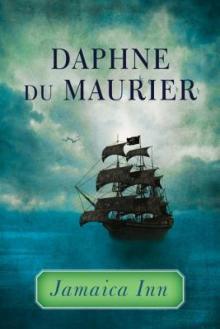 Jamaica Inn
Jamaica Inn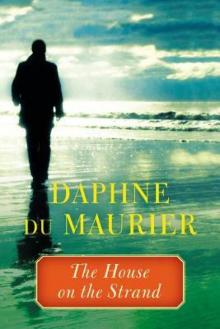 The House on the Strand
The House on the Strand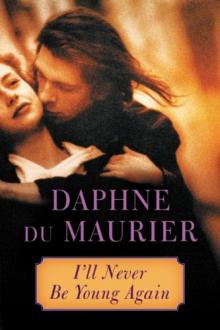 I'll Never Be Young Again
I'll Never Be Young Again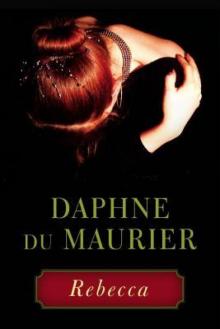 Rebecca
Rebecca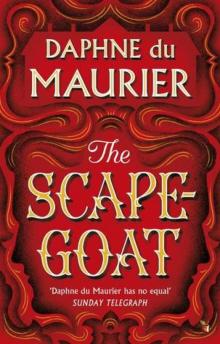 The Scapegoat
The Scapegoat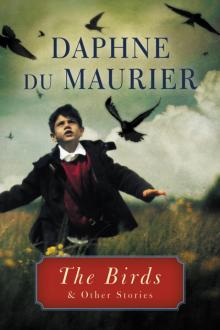 The Birds and Other Stories
The Birds and Other Stories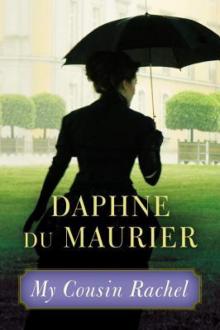 My Cousin Rachel
My Cousin Rachel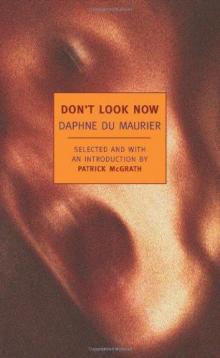 Don't Look Now
Don't Look Now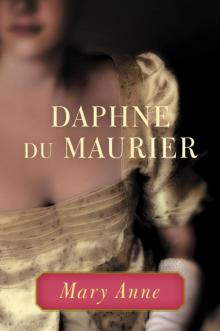 Mary Anne
Mary Anne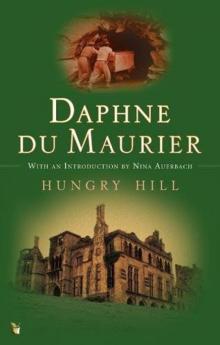 Hungry Hill
Hungry Hill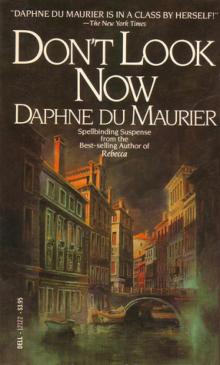 Don't Look Now and Other Stories
Don't Look Now and Other Stories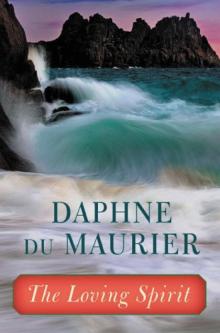 The Loving Spirit
The Loving Spirit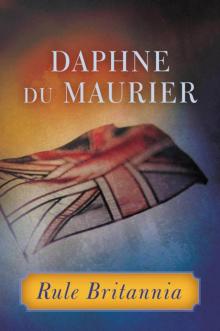 Rule Britannia
Rule Britannia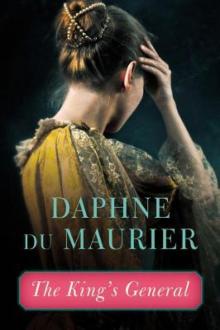 The King's General
The King's General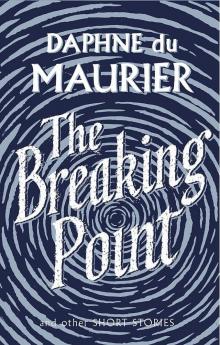 The Breaking Point: Short Stories
The Breaking Point: Short Stories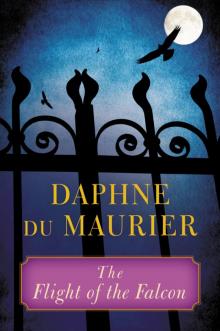 The Flight of the Falcon
The Flight of the Falcon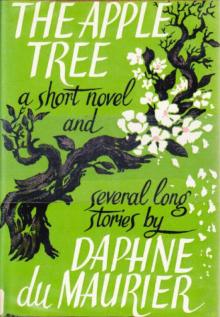 The Apple Tree: a short novel & several long stories
The Apple Tree: a short novel & several long stories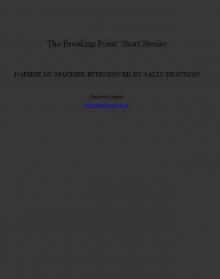 The Breaking Point
The Breaking Point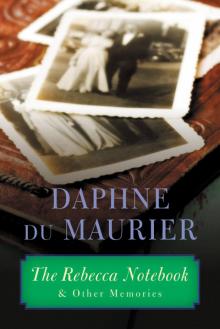 The Rebecca Notebook
The Rebecca Notebook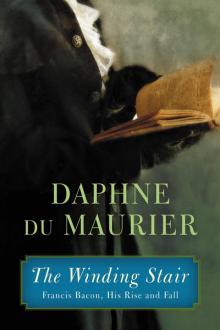 The Winding Stair: Francis Bacon, His Rise and Fall
The Winding Stair: Francis Bacon, His Rise and Fall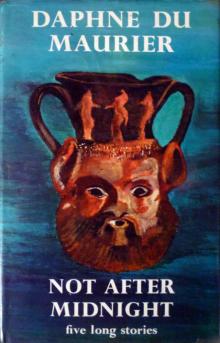 Not After Midnight & Other Stories
Not After Midnight & Other Stories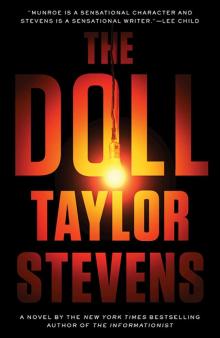 The Doll
The Doll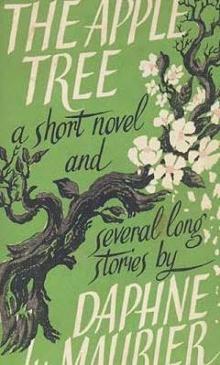 The Apple Tree
The Apple Tree